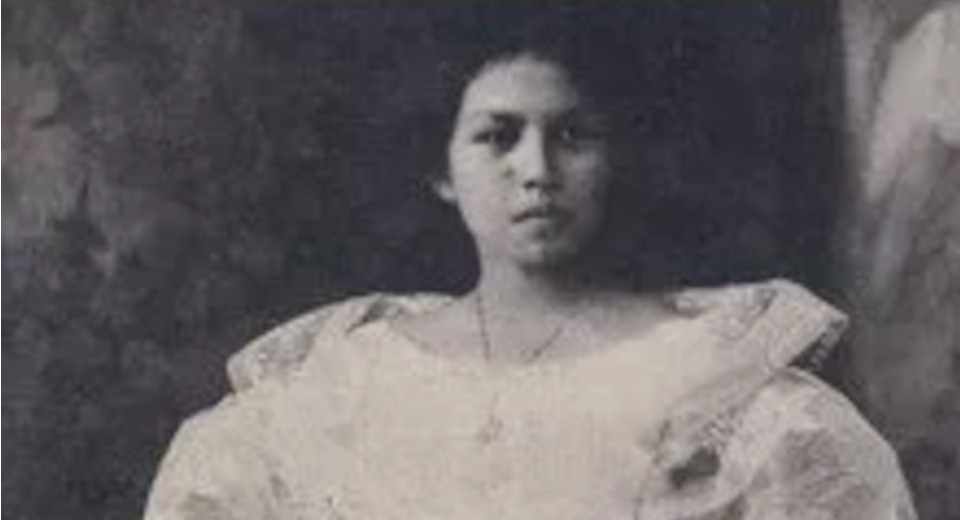
Paz Marquez Benitez was born on January 3, 1894, in Lucena City, Quezon Province, Philippines. Her family was well-respected and influential in their community, with her father being a prominent physician and her mother being a member of the Marquez family, which was one of the oldest and wealthiest in Quezon. Paz’s upbringing was privileged, and she was able to attend good schools both in the Philippines and the United States.
Paz’s father, Dr. Valentin Benitez, was a well-known figure in the medical profession and local politics. He served as a member of the Malolos Congress in 1898, which was the first national congress in the Philippines during the short-lived First Philippine Republic. He was also instrumental in establishing the first hospital in Lucena City, which was named after him.
Paz’s short story “Dead Stars” is widely regarded as a masterpiece of Philippine literature in English. The story explores the themes of love, disillusionment, and the passing of time through the eyes of the main character, Alfredo Salazar. It is considered a landmark in the development of the short story genre in the Philippines and has been anthologized many times.
Paz attended the University of the Philippines (UP) in Manila and earned a Bachelor of Arts degree in 1912. During her time at UP, she was a member of the UP Writers Club, which was founded in 1927 and included some of the most prominent writers in Philippine literature. She later studied at Columbia University in New York, where she earned a Master of Arts degree in 1920.
“Dead Stars” was first published in the Philippine Herald on February 22, 1925. The story caused a sensation in the literary world and established Paz as one of the leading writers of her time. It also won first prize in a literary contest sponsored by the Philippine Free Press in 1925, further cementing its place in Philippine literary history.
Paz’s marriage to Francisco “Paco” Benitez was considered a scandal at the time, as they were distant cousins. Despite this, their marriage was a happy one, and they had three children together. Paco was also a writer and editor and was a significant influence on Paz’s writing.
Paz’s career as a teacher at the University of the Philippines spanned over 30 years. She was highly regarded by her students and colleagues and was known for her dedication and passion for teaching. Many of her former students went on to become successful writers and literary figures in their own right.
Paz’s contributions to Philippine literature were recognized with numerous awards and honors throughout her life. She was awarded the Republic Cultural Heritage Award for Literature in 1961, which is considered one of the highest honors in the arts in the Philippines. She was also a recipient of the City of Manila Patnubay ng Sining at Kalinangan Award in 1965.
Paz was also involved in the wider community, serving as a member of the Philippine Women’s University Board of Trustees from 1940 to 1945. She was active in various social and cultural organizations and was committed to promoting education and literacy in the Philippines.
During World War II, Paz and her family were forced to evacuate Manila and spent several years in the countryside. Despite the difficulties and hardships they faced during the war, Paz continued to write and remained dedicated to her work as a teacher.
Paz retired from teaching at the University of the Philippines in 1950 but remained active in the literary community. She continued to write and publish stories and essays and was a regular contributor to the Philippine magazine Woman’s Home Companion from the 1950s to the 1970s. She also served as a judge for various literary contests and was a mentor to many young writers.
Paz’s literary legacy continues to inspire new generations of writers in the Philippines and beyond. Her work is taught in schools and universities and is widely anthologized in collections of Philippine literature in English. Her writing style, characterized by its simplicity, understated elegance, and emotional depth, has been praised for its ability to capture the essence of Filipino life and culture.
In addition to “Dead Stars,” Paz wrote several other short stories, essays, and articles. Her works often dealt with themes of love, disillusionment, and the search for identity, and were notable for their nuanced portrayals of women’s experiences in Philippine society. Some of her other well-known stories include “A Night in the Hills,” “The Siren of Market Street,” and “The Small Key.”
Paz was a pioneer in Philippine literature in English, which was a relatively new genre at the time. She was part of a generation of writers who sought to explore and express the Filipino experience through English, which had become the language of education, business, and government in the Philippines during the American colonial period.
Paz was also an advocate for the use of English as a medium of instruction in the Philippines. She believed that English was essential for Filipinos to engage with the wider world and to express themselves effectively in a global context. However, she also recognized the importance of preserving and promoting Philippine languages and culture, and was a strong supporter of bilingual education.
In addition to her writing and teaching, Paz was also known for her love of music and the arts. She was an accomplished pianist and often played for her family and friends. She also enjoyed attending concerts, plays, and other cultural events and was a patron of the arts.
Paz passed away on April 5, 1983, at the age of 89. She is remembered as a literary pioneer, a dedicated teacher, and a champion of Philippine culture and identity. Her legacy continues to inspire and influence writers and readers in the Philippines and around the world.
Paz’s life and work have been the subject of several biographies and critical studies. Among them are Soledad S. Reyes’ “Paz Marquez Benitez: One Woman’s Life, Letters, and Writings” and Cristina Pantoja-Hidalgo’s “The Essential Paz Marquez Benitez.” These works provide valuable insights into Paz’s personal and literary life and help to contextualize her place in Philippine literary history.
The University of the Philippines has established the Paz Marquez Benitez Memorial Literary Lectures in her honor. The lectures are held annually and feature distinguished writers and scholars who speak on various aspects of Philippine literature and culture.
In 2018, Google Philippines featured Paz in their Doodle in celebration of National Women’s Month. The Doodle featured an illustration of Paz with a book and a pen, surrounded by elements representing her life and work.
“Dead Stars” has been adapted into several different forms, including a play, a film, and a musical. These adaptations demonstrate the enduring appeal and relevance of Paz’s work and its ability to resonate with audiences across different mediums.
Paz’s contributions to Philippine literature have been recognized posthumously with several awards and honors. In 1990, the National Historical Institute designated her ancestral home in Lucena City as a national historical landmark in recognition of her literary achievements. In 2020, the National Commission for Culture and the Arts declared January 3, Paz’s birthday, as Paz Marquez Benitez Day.
The University of the Philippines Press has published a collection of Paz’s complete works, entitled “The Collected Stories of Paz Marquez Benitez.” The collection includes all of her published and unpublished short stories, as well as her essays and articles. This comprehensive volume offers readers a deeper understanding of Paz’s literary output and her contributions to Philippine literature.
Paz’s influence on Philippine literature extends beyond her own writing. She was a mentor to many aspiring writers and played an important role in the development of the Philippine literary scene. She encouraged her students to write about their own experiences and to find their own voices, and her teaching helped to inspire a new generation of writers in the Philippines.
Paz’s life and work continue to serve as an inspiration to women writers in the Philippines and beyond. Her determination to succeed in a male-dominated field and her commitment to expressing the Filipino experience through English have paved the way for other women writers to follow in her footsteps. As a literary pioneer and a trailblazer for women’s rights and equality, Paz Marquez Benitez will always be remembered as a true icon of Philippine literature.









